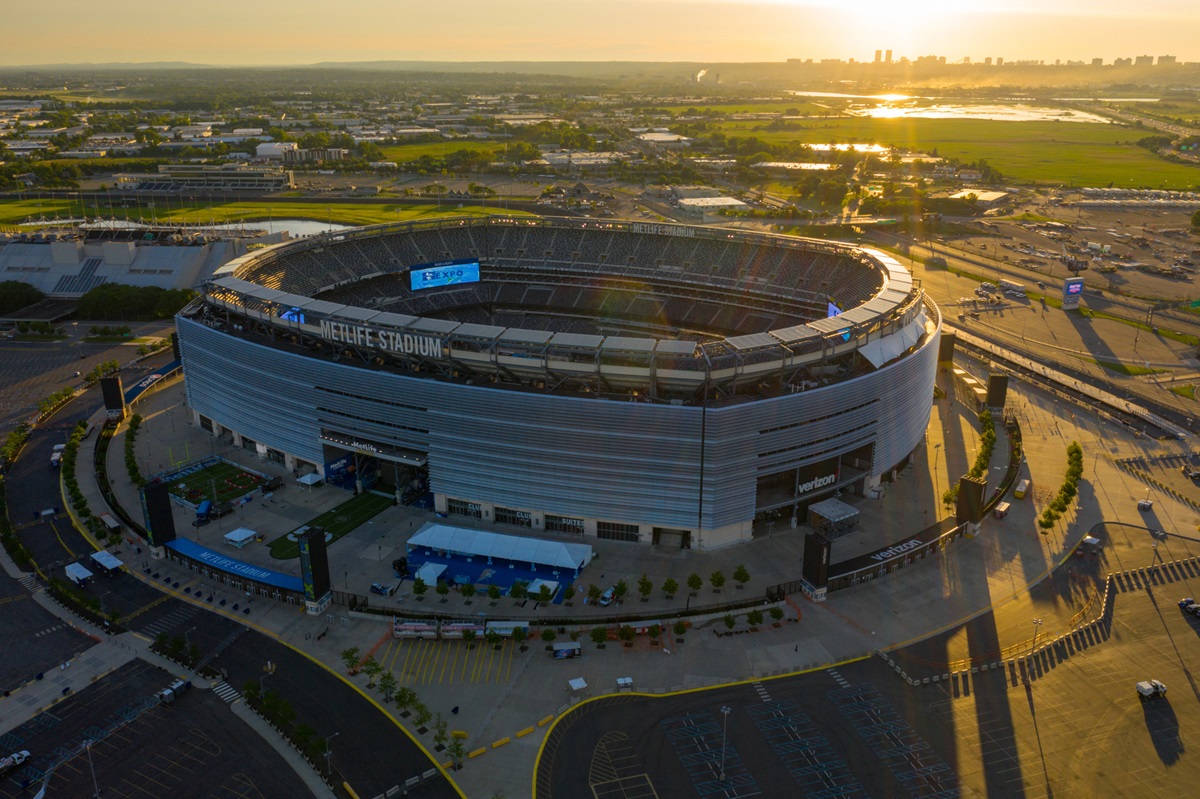The 2026 FIFA World Cup, set to be the grandest in history with 48 teams and 104 matches, will unfold across the United States, Mexico, and Canada. While the U.S. dominates with 11 host cities, Mexico and Canada emerge as vibrant co-hosts, each offering a unique blend of soccer passion, cultural richness, and logistical advantages. With five stadiums between them, these nations are poised to create unforgettable experiences for fans. From Mexico’s storied soccer heritage to Canada’s burgeoning soccer scene, both countries promise to be appealing sanctuaries for visitors in June and July 2026.
Mexico: A Soccer Heartbeat
Mexico’s love affair with soccer is legendary. Having hosted the World Cup in 1970 and 1986, it will become the first nation to stage the tournament three times. This experience translates into a deep understanding of what it takes to welcome the world. The country’s soccer culture, where the sport is akin to a religion, ensures an electrifying atmosphere that will captivate fans.
Iconic Stadiums
Mexico’s three host stadiums are steeped in history and primed for 2026. Estadio Azteca in Mexico City, with a capacity of 83,000, is a soccer cathedral. It hosted the 1970 final, where Pelé’s Brazil triumphed, and the 1986 final, where Diego Maradona’s Argentina reigned supreme. Set to host the opening match on June 11, 2026, the Azteca is undergoing renovations to meet FIFA’s modern standards while preserving its soul. Its high-altitude setting at 2,200 meters adds a unique challenge for teams and a mystique for fans.
In Guadalajara, Estadio Akron (capacity: 49,850) offers a modern contrast. Home to Chivas, it’s known for its passionate crowds and intimate design, ensuring fans are close to the action. Meanwhile, Estadio BBVA in Monterrey (capacity: 53,500) blends cutting-edge facilities with the fervor of Tigres and Rayados supporters. Both venues promise a festive environment, with Monterrey’s industrial vibrancy and Guadalajara’s cultural charm enhancing the visitor experience.
Advantages for Visitors
Mexico’s appeal lies in its accessibility and affordability. Major international airports in Mexico City, Guadalajara, and Monterrey connect seamlessly to global hubs, with budget-friendly flights from the U.S. and Latin America. Accommodation options range from luxury hotels to affordable hostels, catering to diverse budgets. The cost of living is lower than in many Western nations, meaning fans can enjoy authentic tacos, mezcal, and local markets without breaking the bank.
The country’s compact World Cup footprint—three cities within a 700-mile radius—makes travel manageable. High-speed buses and domestic flights connect the venues, while Mexico’s tourism infrastructure, honed by decades of hosting global events, ensures smooth logistics. Fans can explore Mexico City’s historic Zócalo, Guadalajara’s tequila distilleries, or Monterrey’s Fundidora Park between matches, immersing themselves in a culture that celebrates life as fiercely as it does soccer.
Impact and Atmosphere

Mexico expects 5.5 million additional tourists during the World Cup, boosting local economies by an estimated $1.5 billion. This influx will ripple through hospitality, retail, and transportation sectors, creating thousands of jobs. The atmosphere will be a carnival of color and sound—think mariachi bands, street vendors, and fans in lucha libre masks chanting “Cielito Lindo.” Mexico’s warmth and hospitality will make every visitor feel like part of the fiesta, whether they’re cheering for El Tri or an underdog.
Canada: A Rising Soccer Star
Canada’s soccer scene is on the ascent, fueled by its men’s team qualifying for the 2022 World Cup and the women’s team’s Olympic success. Co-hosting 2026 is a chance to showcase this momentum and cement soccer’s place in a nation traditionally dominated by hockey. Toronto and Vancouver, the two host cities, are cosmopolitan hubs ready to welcome the world with open arms.
Dynamic Stadiums
BMO Field in Toronto, with a planned expansion to 45,000 seats, is the smallest 2026 venue but big on atmosphere. Home to Toronto FC, it’s a fan favorite for its raucous supporter sections and urban setting near Lake Ontario. Set to host Canada’s opening match on June 12, 2026, BMO Field will offer an intimate, high-energy experience.

BC Place in Vancouver, with a capacity of 54,500, is a multi-sport marvel that hosted the 2015 Women’s World Cup final. Located on the scenic False Creek inlet, it’s home to the Vancouver Whitecaps and known for its retractable roof, ensuring matches proceed rain or shine. Both stadiums are undergoing upgrades to meet FIFA’s grass pitch requirements, promising pristine playing surfaces.
Advantages for Visitors
Canada’s strengths include safety, diversity, and world-class infrastructure. Toronto and Vancouver are global cities with extensive public transit systems, including subways, buses, and ferries, making stadium access a breeze. English is the primary language, easing communication for international fans, while Canada’s multicultural fabric—evident in Toronto’s 200+ ethnic communities and Vancouver’s Asian influences—creates a welcoming vibe.
Accommodation options are plentiful, from boutique hotels to Airbnb rentals, though prices may be higher than in Mexico. Canada’s proximity to the U.S. allows fans to combine cross-border match visits, with Vancouver just 120 miles from Seattle’s Lumen Field. Visitors can also explore Toronto’s CN Tower or Vancouver’s Stanley Park, blending urban adventures with natural beauty. The Canadian dollar’s favorable exchange rate for many currencies adds to the appeal.
Impact and Atmosphere
The World Cup is projected to generate $1 billion in economic activity for Canada, with Toronto and Vancouver expecting 350,000 visitors each. This will spur job creation in tourism and construction, particularly for stadium and transit upgrades. The atmosphere will blend Canada’s polite charm with soccer’s growing passion. Expect diverse fan zones with poutine and craft beer, vibrant Indigenous cultural displays, and supporters from around the globe uniting in Canada’s inclusive spirit. Vancouver’s coastal energy and Toronto’s urban buzz will make every match a celebration.
A Shared Legacy
Mexico and Canada, though distinct, share a commitment to making the 2026 World Cup a cultural and sporting triumph. Mexico’s fiery passion and Canada’s cool inclusivity complement each other, offering fans varied yet equally compelling experiences. The 13 matches each country hosts—out of 104 total—may seem modest compared to the U.S.’s 78, but their impact will be outsized.
Both nations face challenges, including geopolitical tensions from U.S. tariffs, which could complicate cross-border travel. Yet, as Mexico’s FIFA representative Gabriela Cuevas noted, the World Cup could foster dialogue and unity. Climate concerns, particularly heat risks in Mexico City, require careful scheduling, but both countries are investing in sustainable infrastructure to mitigate environmental impacts.
A Global Invitation
For fans, Mexico and Canada offer more than matches—they promise immersion in soccer’s soul. Mexico’s stadiums pulse with history, while Canada’s venues buzz with fresh ambition. Affordable travel, rich cultures, and electric atmospheres make these nations unmissable stops in 2026. As FIFA president Gianni Infantino predicted, the tournament will “invade” North America with joy. In Mexico and Canada, that joy will find its warmest sanctuaries, leaving a legacy of unity and celebration long after the final whistle.







